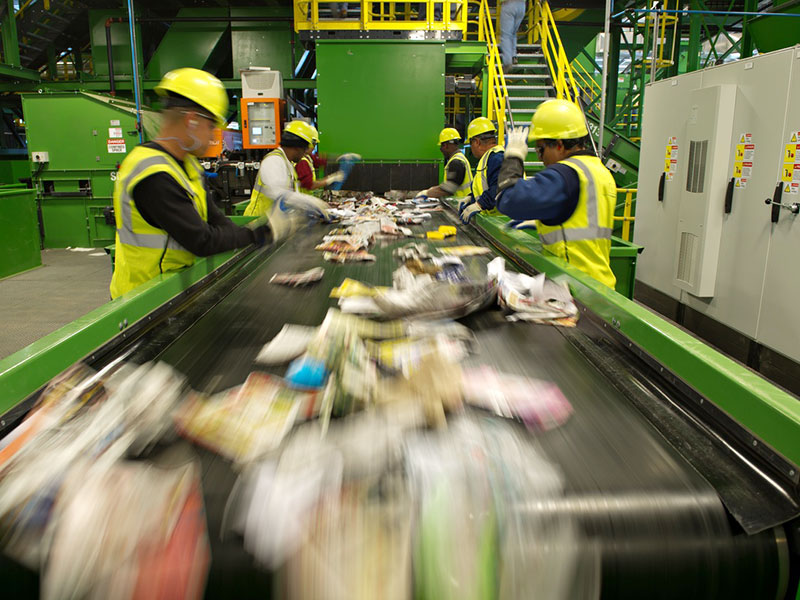By implementing sustainable practices like recycling, materials reuse, and cutting back on needless production, companies can reduce the amount of waste from the industry they produce. Waste minimization initiatives can be further strengthened by employing environmentally friendly containers, effective inventory administration, and business process optimization to reduce waste output. Putting in place waste segregation systems and purchasing equipment that uses fewer resources can also have a big impact. Businesses seeking to manage garbage sustainably can benefit from services like skip hire Trafford, which offers workable ways to collect and dispose of industrial waste effectively. This helps companies operate more sustainably and reduce their negative environmental impact.
Conduct waste audits
An efficient first step in controlling and minimizing industrial waste is a waste assessment. Organizations can pinpoint significant areas for development by examining the kinds and volumes of trash produced. Companies can develop targeted initiatives and track gains over time by focusing on the most influential areas with the support of a comprehension of waste factors.
Use the Principles of Lean Manufacturing
Reducing waste at every stage of production is a top priority for lean manufacturing methods. This strategy aims to maximize value with the fewest assets by streamlining processes, reducing output surplus, and identifying inefficiency. By implementing lean principles, businesses can lower operating expenses, energy use, and material waste.
Cut Down on Overproduction
One of the main causes of industry waste is excessive production. Overproduction results in surplus inventory, which eventually degrades into trash. By implementing demand forecasting and inventory management systems, organizations may reduce excess production and correctly match manufacturing with customer demand, thereby cutting waste and satisfying market demands.
Promote the Reuse of Materials
Waste may be significantly reduced by reusing resources throughout the manufacturing cycle. Offcuts and leftover components, for example, are frequently recycled for other purposes or returned to production. The demand for new resources is decreased and less garbage is dumped in dumpsters when a system for gathering and classifying reusable items is established.
Make Recycling Programs a Priority
Recycling is a simple yet effective way to handle industrial waste. Companies can ensure that resources like paper, plastics, and metals are treated responsibly by setting up special recycling stations for these commodities. Businesses may handle the challenges of recycling industrial waste and support sustainable economic objectives by collaborating with specialized recycling facilities.
Invest in cutting-edge waste disposal equipment.
There are several ways to limit trash generation with modern technology. Compactors are devices and shredders that for instance, can lower trash volumes, while on-site treatment equipment can handle potentially hazardous substances. In addition to lowering trash output, putting money into cutting-edge waste management technologies can increase overall productivity and ensure that environmental standards are followed.
Enhance Your Packaging Options
A substantial portion of industrial waste is made up of packaging materials. By using packaging supplies that are recyclable, biodegradable, or reusable, organizations can cut down on waste. Shipments in quantities and lighter packing solutions can also reduce waste and associated shipping and disposal expenses.
Educate Staff on Waste Reduction Techniques
Long-term transformation involves informing staff members about waste reduction techniques. Training programs that stress the value of sustainable practices and offer detailed instructions for cutting trash can have a big impact. A culture of environmental stewardship is also promoted by rewarding and recognizing employees for their contributions.
Collaborate with Eco-Friendly Providers
One of the most significant aspects of total waste management is the garbage produced by a company’s supply chain. Reducing waste at its source can be facilitated by collaborating with vendors who value environmentally friendly practices. To promote a more environmentally friendly method of manufacture, businesses should work with providers who use fewer containers, use recyclable materials, and use environmentally friendly manufacturing techniques.
Put Just-in-Time (JIT) inventory control into practice.
By carefully coordinating the amount of inventory with schedules for manufacturing, Just-in-Time (JIT) inventory management minimizes waste. By minimizing the requirement for extra stock, this strategy lowers the possibility of waste from unwanted or discontinued items. Organizations can reduce waste output and storage expenses by streamlining their processes through the use of JIT.
Final words
Cutting back on commercial waste generation is a good business move as well as for the environment. Companies may save on expenses and wastage while simultaneously improving the community and the environment by putting these tactics into practice.
